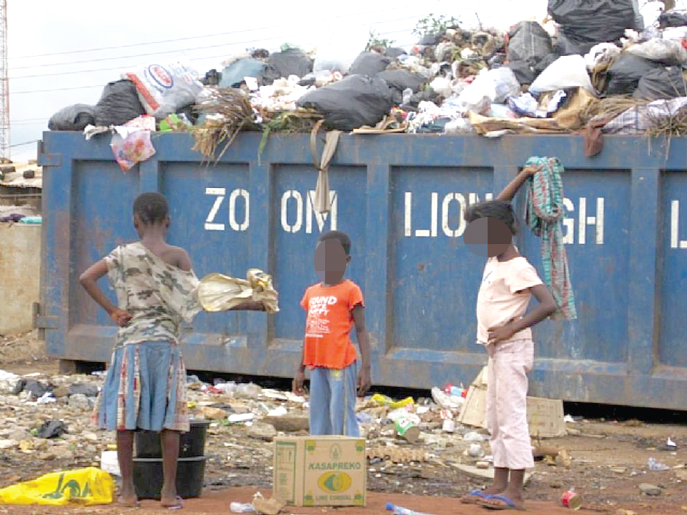
Sanitation in the 1950s, 60s and now
I was born in the city of Ho in 1950. My life straddles two centuries. I have seen the 20th century. I am now seeing the 21st century. I have seen the gramophone, the telegram, etc. I am now seeing the Internet.
I have seen how waste/refuse was managed in the 50s and 60s, at least in the city of Ho, and how it is being managed now in Ghana generally.
In the 50s and 60s, waste disposal was not left to chance; it was deliberately managed and managed well. It was one of the legacies the colonial administration left for Ghana.
In Ho, for example, the district assembly was in charge of waste disposal; both solid and liquid.
The city was properly zoned and waste-disposal sites were in every community. We did not throw rubbish everywhere and anywhere; rather, we carried our waste, every day, to these disposal sites faithfully.
When you arrive at a site ,you pour your rubbish at a specific place on the ground and you leave. The attendant takes it up from there; he sorts the rubbish. Those that can easily burn he transfers to the incinerator where a fire is burning almost perpetually!
Bottles and similar items which cannot be burned are thrown into a deep pit at the site.
As children, we faithfully carried the household rubbish to the dumping sites every morning.
We did not throw them into the gutters.
Change in practice
I cannot remember how this beautiful legacy left for us by the colonial masters became lost till today, but what I do know is that this best practice for waste disposal, which served us well, is now non-existent.
In its place, the gutters and the rivers and the sea have replaced the incinerators. The district assemblies still exist, but they no longer have a clue to town, urban and city waste disposal.
Apart from the general waste disposal at the designated sites, household sanitation was scrupulously observed because there were sanctions if, as a household, you failed in this regard.
Sanitary inspectors went round every morning to ensure that every household in the community observed strict hygienic and sanitation practices. Hygiene was also taught in the schools; I don’t know if it is still being taught.
Cholera was unknown in the Gold Coast or Ghana for that matter. As a young child growing up, I only read about cholera in the health books until it hit Ghana for the first time in 1971, a year after I left secondary school form five.
Since cholera hit Ghana in 1971, it has never left us, at least not completely. This is an indication that the strict hygiene and sanitation practices left us by the colonial administration have come to a halt.
Recommendations
Solution? Those who bear rule in this country, from the President down to the last civil/public servant, must rise up and use the coercive powers of the state to whip all recalcitrant elements into order instead of singing “songs of lamentation” of so called “attitudinal change”.
In the 1950s and 60s, those who bore rule did not lament about the absence of “right attitude”, they applied the law and all the necessary sanctions; you disobeyed to your own peril because the law would not spare you. As a result, citizens learnt to do the right thing.
Attitudes don’t change by themselves, it’s sanctions that compel citizens to change bad attitudes. Human beings are the same all over the world; in the developed countries which we are often fond of citing as good examples, the laws/sanctions work.
Punishment is also a form of “education” and I believe an effective one, for that matter! By the way, why do we, in Ghana, fear to punish wrongdoing? The followers are not Ghana’s problem, the leaders are.
Leaders who are not ready to make the hard choices/decisions must step aside and make way for people who can turn this country into a paradise for all of us and not just for a few. Ghana is not lacking in citizens who can make Ghana work again, but the professional politicians and their military adventurist have crowded everybody else out of the political space.
Until our rulers repent and begin to practise a politics of all-inclusiveness, the day of our redemption will be nowhere in sight.
God bless our homeland Ghana.
The writer is a retired
Public Servant.
Tel: 0248794239